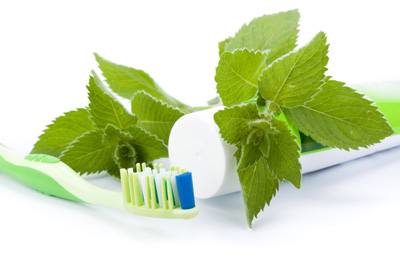
Having a bright white smile is one of the best natural beauty tips that anyone can follow. And it starts with following a routine of brushing your teeth every day. But what many people don’t know is that most brand-name toothpaste contains a number of ingredients that are not at all natural, and are actually not healthy for you or the environment.
Commercial toothpaste ingredients are not healthy for humans.
Bleach and peroxide are commonly used as whitening agents in commercial toothpastes. But both bleach and peroxide can be an irritant to the mouth and skin in small doses, and are considered to be hazardous materials because they can cause severe chemical burns in large doses, so why take that chance?
Artificial flavorings and scents are commonly made from synthetic chemicals derived from petrochemicals or coal tar. Manufacturers argue that artificial flavors are safer than natural flavors because their composition is standardized and regulated. But do you really think that consuming anything made from crude oil is safe for you and your family?
Commercial toothpaste ingredients are not healthy for the environment.
EDTA (ethylenediaminetetraacetic acid) and formaldehyde are commonly used a preservatives in toothpaste, and many other cosmetics and personal care products. They are known environmental pollutants.
Triclosan is used in toothpaste for bacteria and tartar control. The problem is that it can combine with other materials to create dioxins, which are dangerous pollutants.
Natural toothpaste ingredients do the job just as well.
There are so many natural ingredients that do the same job as the synthetics that there’s really no reason not to use the healthier alternatives. For example, look for toothpastes that use natural flavors and scents like cinnamon, peppermint and orange. Or if you are sensitive to smells, choose a product that uses no scents at all.
If you want toothpaste that whitens, look for silica. It’s a naturally occurring component of sand and can be used to polish and whiten teeth.
Zinc is a natural mineral that can be used instead of triclosan to fight tarter.

